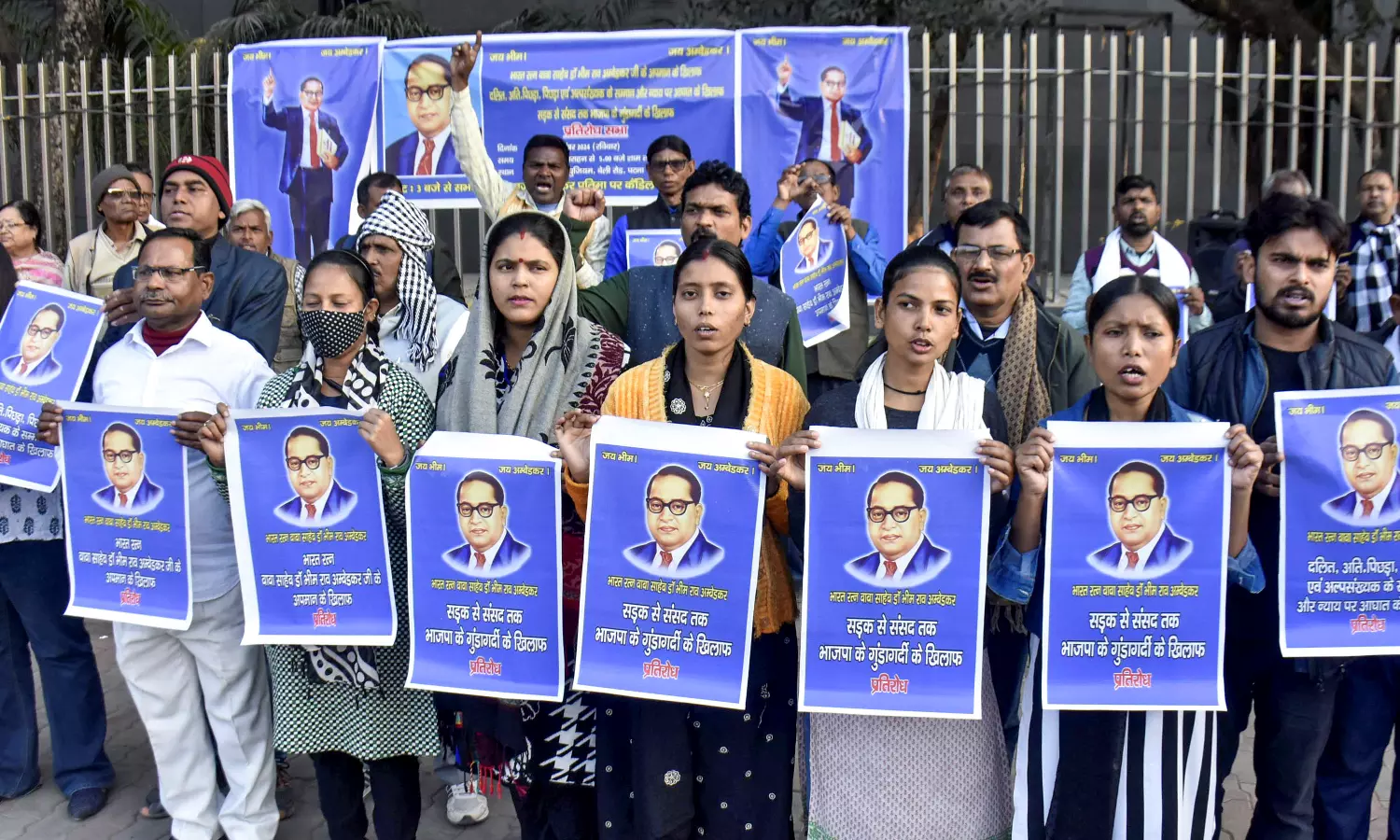DC Edit | The battle over Ambedkar’s legacy mainly for dalit votes

The political slugfest that is on nationally and which led to a day in the Winter Session becoming its worst in India’s parliamentary history may be owed to the facetious comments the home minister Amit Shah made on the floor. It is moot whether he should have come forward at the earliest with a straightforward apology to douse the fires.
The plain and simple fact of the matter is that off-the-cuff remarks have triggered a war that is really a fight for the votes of the dalits rather than a battle of high principles. The Opposition, sensing an opportunity to further its claim to be a champion of the dalits, has opened the battle on many fronts in the wake of the home minister’s slip.
Ambedkar is no less than a god to his followers who constitute about 17 per cent of India’s 968 million voters and hence even an allusion to ‘God’ in the debate on the Constitution, of which he was the principal architect, became the tinder that set the issue on fire whose repercussions are hard to gauge now.
Truth to tell, Ambedkar’s political and social influence on Indian society has far outgrown the social justice movement he propounded to empower the suppressed and the backward who, being on the lowest rung of India’s reprehensible caste system, suffered the worst of the discrimination. Only slavery in the West could have matched the caste system’s dehumanising effect on society.
And yet the man who opposed M.K. Gandhi and Jawaharlal Nehru when it came to matters of principle was not so much honoured in his lifetime of contribution as a battler of the reviled ancient caste system. Neither the Congress under Nehru, which could not fully support Ambedkar’s fight on the highest principles and ideals — and so he resigned as law minister, nor the BJP, which has been prone to claiming his legacy in modern times, are the real inheritors of Ambedkar’s valiant fight for social justice.
The votes of people who constitute nearly a fifth of the electorate, but who are seen to vote differently in different parts of India, matter. This is the crux of the issue that will now be fought outside Parliament which, in the paralysed mode of functioning it assumes at the merest sighting of the next contentious issue, may be doomed to playing a lesser role in the existing polarised atmosphere.
It is ironic that the two major national parties, the BJP and the Congress, which cannot claim absolute reverence to the principles enunciated by Ambedkar, are facing each other head-on about Ambedkar and the dalits whose cause he championed throughout his life. The entire narrative in the Constitution debate seemed to be showing each other in poor light when it came to dealing with the history of Ambedkar.
The Congress would like to project its record of inclusiveness now to embrace the dalits who voted in larger numbers for them in some states as compared to the 2019 elections. However, in the Modi era, the BJP with more pronounced pro-poor policies — despite professing support for Hindutva and its own caste equation making it lean more towards the OBCs who constitute about 52 per cent of the population — has been projecting itself as a supporter of Ambedkar.
It is a pity that the debate was not about the constitutional path to social justice but only about historical figures associated with the writing of the document. In a time of a clear political divide, raking up the past will have served no purpose if it does not at least lead to thinking on what can be done not only to a quarter of the population in dalits and adivasis but about what can be done to better the lot of 143 crore Indians.

